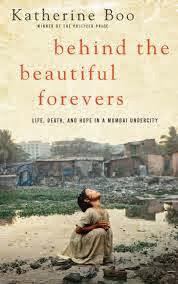Sometimes a reading experience can be just as memorable as the book itself. Last month I had the pleasure of reading The Age of Innocence with Audrey, another long-time Edith Wharton fan. It was a reread for her, but somehow I never got around to reading the book many refer to as Wharton's masterpiece.
Goodreads sums it up nicely in just one sentence:
Winner of the 1921 Pulitzer Prize, The Age of Innocence is Edith Wharton’s masterful portrait of desire and betrayal during the sumptuous Golden Age of Old New York, a time when society people “dreaded scandal more than disease.”
The main character, Newland Archer, is caught between desire and duty. Archer is engaged to May Welland, a quintessential product of the society in which she has been raised, but he begins to develop feelings for May's free-spirited cousin, Countess Ellen Olenska, who has recently returned to New York to escape an unhappy marriage.
Wharton's style is immediately recognizable and the story drew me in right away, but her portrayal of 'society' also fascinated me. Societal constraints appeared suffocating, arbitrary, and at times laughable. For example, it was considered vulgar to appear in the latest fashion. New dresses were ordered from Paris only to hang in closets for two years. After that amount of time had lapsed, they were deemed appropriate.
I don't want to say anything more about the plot, but the last chapter just bowled me over. Can there be a better ending in all of literature? Set 26 years later, it transformed a really good novel into a great one. The Custom of the Country has long been my favorite Wharton novel but, after reading that last chapter, The Age of Innocence moved into my top slot. However, I still think Undine Spragg is Wharton's most memorable character.
The Age of Innocence was a read/listen combination for me. Although a beautiful hardcover has been on my shelf for years, I downloaded a free kindle edition and a 99 cent audible special narrated by Laural Merlington (who captured the tone of the novel perfectly). Whispersync is so convenient!
My rating:
The only thing better than a shared read with a blogging friend is to meet in person and talk about it. If that meeting happens to take place at the author's home, then all the better. Audrey and I had the opportunity to meet a couple of Sundays ago at The Mount, Wharton's home in Lenox, MA.
We had lunch on the terrace and talked about The Age of Innocence, books, blogging, life, baking, and much more. After lunch we toured the house, gardens, and, of course, the gift shop.
Audrey and JoAnn at The Mount
Although it was a grey, drizzly, frizzy-hair kind of day, it didn't dampen our enjoyment in the least. We're already talking about planning another bookish activity, possibly next spring or summer. In the meantime, I need to read that biography by Hermione Lee I bought five years ago on my last visit to The Mount.


























